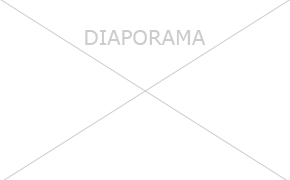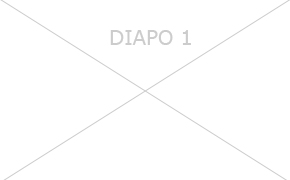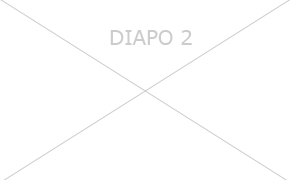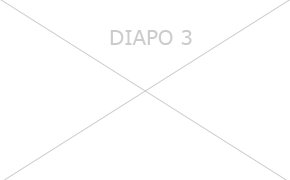Informations générales
Entité de rattachement
Le CEA est un acteur majeur de la recherche, au service des citoyens, de l'économie et de l'Etat.
Il apporte des solutions concrètes à leurs besoins dans quatre domaines principaux : transition énergétique, transition numérique, technologies pour la médecine du futur, défense et sécurité sur un socle de recherche fondamentale. Le CEA s'engage depuis plus de 75 ans au service de la souveraineté scientifique, technologique et industrielle de la France et de l'Europe pour un présent et un avenir mieux maîtrisés et plus sûrs.
Implanté au cœur des territoires équipés de très grandes infrastructures de recherche, le CEA dispose d'un large éventail de partenaires académiques et industriels en France, en Europe et à l'international.
Les 20 000 collaboratrices et collaborateurs du CEA partagent trois valeurs fondamentales :
• La conscience des responsabilités
• La coopération
• La curiosité
Référence
2023-27825
Description de l'unité
Basé principalement à Grenoble et Chambéry, le Laboratoire d'Innovation pour les Technologies des Energies nouvelles et les Nanomatériaux (Liten) est un acteur majeur de la recherche européenne entièrement dédié aux nouvelles technologies de l'énergie.
Unité du LITEN, le Département des Technologies des Nouveaux Matériaux a pour mission de développer pour l'industrie française des matériaux, des procédés et des composants performants tout en répondant à la notion d'économie de matière et d'énergie en toute sécurité pour l'homme et l'environnement.
Dans ce département, le Service Architecture 3D développe des matériaux et des procédés pour la réalisation de pièces de formes ou de propriétés spécifiques, offrant de meilleures performances tout en répondant à la notion d'économies de matière et d'énergie, en se basant en particulier sur des compétences de mise en forme des poudres par différents procédés disponibles sur la plateforme technologique POUDRINNOV2.0 (injection, fabrication additive,…).
Vous avez l'opportunité d'apporter votre contribution à la mission du Laboratoire de Modélisation et Matériaux pour la Métallurgie : développer et mettre en œuvre des matériaux métalliques par Fabrication additive, innover dans les matériaux par des modélisations ab initio et multiphysique et conduire des développements de matériaux innovants pour la thermoélectricité.
Description du poste
Domaine
Matériaux, physique du solide
Contrat
Post-doctorat
Intitulé de l'offre
POSTDOC - Simulation numérique de l'impression 3D de composants bi-métalliques H/F
Sujet de stage
Simulation numérique de l'impression 3D de composants bi-métalliques
Durée du contrat (en mois)
24 mois
Description de l'offre
CEA-LITEN is a french state research center developing, amongst others, new materials for 3D printing (metals, ceramics, polymers, composites). In this work, we will focus on L-PBF process (Laser-Powder Bed Fusion). This process is a real revolution in industrial applications permitting manufacturing small to medium series with high level of complexity with increasing productivity .
This position will take place in the frame of MADE 3D European project . This project is dedicated to multimaterial process using L-PBF technology, wich is an actual growing topic in our community . This process permits to enhance actual manufacturing with the possibility to use two materials (bi-material component). The system used in our study is detailed .
The objective of this position is to build and run numerical simulations on such process taking account both thermal and mechanical behavior. ANSYS© software will be used for this work. If many softwares are available for L-PBF process simulations at different scales , bimaterial configuration simulation is still understudied. Simulations will be compared to experimental results, such as microstructure observations , XR-diffraction or 3D printed samples deflexions.
The first part of the job will consist in a litterature review on L-PBF simulation with in parallel ownership of simulation software. Two simulation scales will be considered in this study. The first one is macro scale simulation at layer scale, with direct layer deposition for each material. Residual stresses will be compared with more detailed simulations already done at micro scale (melt pool scale) as XRD experimental measurements. The second scale will be at several layers scale (segregated layer approach. For that scale, experimental samples deflexions will be compared on manufactured parts. A work on geometry adaptation or new concept samples will be first proposed to take into account bi-material behavior.
Profil du candidat
De formation Bac+8 (Docteur en simulation et/ou matériaux) , vous recherchez une première expérience professionnelle sous forme de post-doctorat à l'issue de votre thèse.
Bon niveau en anglais indispensable (Oral et écrit)
Une expérience des procédés de fabrication additive métal – notamment LPBF – serait un plus
Localisation du poste
Site
Grenoble
Localisation du poste
France, Auvergne-Rhône-Alpes, Isère (38)
Ville
Grenoble
Critères candidat
Langues
Anglais (Courant)
Diplôme préparé
Sans diplôme
Formation recommandée
Docteur en simulation et/ou matériaux
Possibilité de poursuite en thèse
Non
Demandeur
Disponibilité du poste
02/01/2024

 Je me crée un espace candidat
Je me crée un espace candidat






